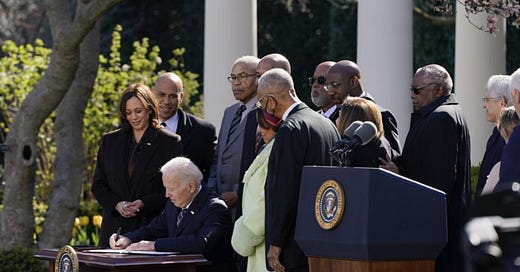Between 1882 to 1968, 4,743 lynchings occurred in the U.S., according to records maintained by NAACP. Yet, only on March 7, 2022 did the nation’s first ever “anti-lynching” bill pass both houses of Congress. On March 29, 2022, President Biden signed the “Emmit Till Anti-Lynching” bill into law.
Pardon me, but this seems like about a hundred…
Keep reading with a 7-day free trial
Subscribe to Things We Don't Talk About Like Politics & Religion to keep reading this post and get 7 days of free access to the full post archives.




